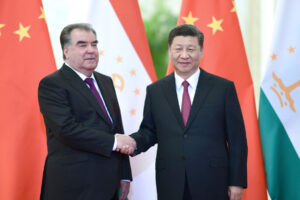Recent speculation about the regulatory obstacles to the AUKUS agreement add to the Congressional concerns over the industrial base’s capacity to deliver the Virginia class submarines and meet to USN’s force level targets. Moreover, hanging over all of America’s foreign policy positions going forward is the faltering support for foreign adventures and the prospect of another isolationist-leaning Trump Administration abandoning ‘bad deals’. AUKUS remains bad policy.
The risks associated with the AUKUS project delivering value to Australia, as opposed to meeting American interests, should have been obvious to Defence officials and have been briefed to ministers. Yet Australia faces an inexplicable situation where the project is threatened by previously well-known hurdles to accessing sensitive military technology; hurdles known from long and bitter experience in acquiring military platforms and capabilities from America.
While it is not impossible that all the ducks will line up and the submarine fairy will deliver, the prospect of AUKUS turning out to be the greatest policy blunder in Canberra’s history is growing more likely.
Jeffrey Bialos, a former Clinton Administration deputy undersecretary of defence well versed in the regulatory framework in the State and Defence departments, has written that “the regulatory standards that would be required of Australia and Britain were so stringent that the countries wouldn’t agree to them and in practice co-operation couldn’t occur”. It’s not the hulls but “the essential technology co-operation related to [them] and Pillar II activities; [and] the rules effectively kill it”.
Under the existing International Traffic in Arms (ITAR) regulation and the Foreign Military Sales (FMS) rules there has arisen “a longstanding morass of complexity and bureaucracy that result in well-known barriers to cooperation with the United States’ closest allies”. The draft legislation currently before Congress is, in Bialos’ expert opinion, “largely be unworkable”.
Bialos is not alone in this view, with another expert observing ITAR is “the primary barrier to the dream of making AUKUS a near term reality” and noting the Biden Administration has not proposed “workable legislative proposals that would take aim at ITAR’s pitfalls [and] the few reforms the administration has offered so far have not been serious or implementable”.
Even progressing what is assessed by some experts as the inadequate, AUKUS legislation is subject to the Biden Administration meeting Congress’ concerns about the shortcomings in the submarine industrial base. Although the early 2030s are still some way in the future and there might be time to reform ITAR and FMS rules, but, given the massive changes in legislation and regulation required by Australia, the complex contractual arrangements to be negotiated, and the production and infrastructure investment required, a decade is not very long.
The government messaging on the AUKUS project has been silent on the risks. If the project cannot escape the “ poison pill” of ITAR and FMS rules and the procurement collapses Australia will be left without a submarine capability mid-century.
Meanwhile named-storm Trump approaches Washington bringing unknown risks to not just AUKUS but global and alliance stability generally. Political risk is far harder to anticipate but has also been completely ignored.
To gamble with Australia’s defence because of an utter failure to consider the risks to the project’s success, or perhaps ignoring them, is already a fundamental failure in the policy process. Labor and Coalition leaders have been adamant that the AUKUS submarines are vital to Australia’s defence. To not be upfront with the Australian public about the gamble being taken is an unforgivable dereliction.
Whether or not one is a supporter of the AUKUS project, it is impossible not to see the shortcomings of the responsible ministers and officials as putting Australia’s security at the mercy of forces the government cannot affect. Collectively successive governments might have authored the greatest policy blunder in Australia’s history.
Source : JohnMenadue
















